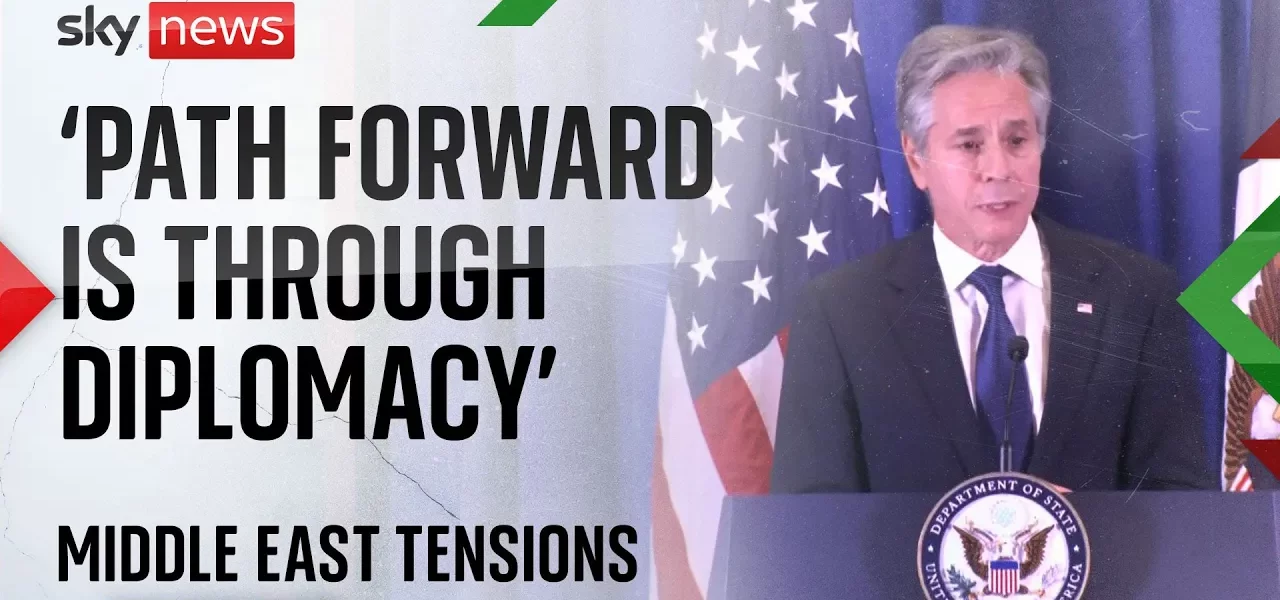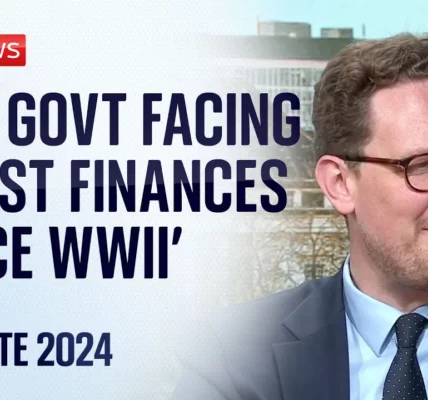US Secretary of State Anthony Blinken Discusses Israel’s Military Operations

In a recent address, US Secretary of State Anthony Blinken provided insights into the ongoing military operations in Israel and Lebanon, emphasizing the balance between national defense and diplomatic solutions. This article delves into the key points raised by Blinken, offering a detailed analysis of the situation and its broader implications for regional security.
Introduction
The current geopolitical climate in the Middle East, particularly concerning Israel and Lebanon, has become increasingly complex. Secretary of State Anthony Blinken’s recent statements shed light on the US’s stance regarding Israel’s military actions and the need for a balanced approach to security and diplomacy. This article examines Blinken’s viewpoints, the context of the ongoing conflict, and the potential pathways to peace in the region.
Israel’s Military Operations and Self-Defense
Secretary Blinken reiterated the position that Israel has the right to defend itself against threats, particularly from Hezbollah and Iranian proxies. This perspective is critical in understanding the current military operations.
The Context of Military Actions
Since October 7, when Hezbollah escalated attacks by launching rockets into Israel, the Israeli government has deemed it necessary to respond militarily. Blinken pointed out that:
- There has been a significant displacement of populations on both sides of the border.
- Israel’s objective is to create a secure environment that allows civilians to return home safely.
- The ongoing conflict has resulted in extensive humanitarian concerns that need to be addressed.
Legitimate Self-Defense or Escalation?
While Israel’s right to defend itself is acknowledged, the effectiveness and sustainability of military operations as a long-term solution remain in question. Blinken emphasized the need for a strategic approach:
- Understanding the implications of military actions on civilian populations.
- Exploring diplomatic avenues to mitigate further escalation.
- Establishing conditions that foster long-term peace and security.
The Role of Diplomacy
Amidst the military operations, Blinken underscored the importance of diplomatic efforts. He highlighted that many nations, including the G7 and key Arab partners, support calls for a ceasefire to facilitate humanitarian assistance.
Calls for Ceasefire
Diplomatic initiatives aim to achieve a 21-day ceasefire to:
- Provide much-needed humanitarian aid to affected populations.
- Facilitate dialogue between conflicting parties.
- Create a stable environment for the return of displaced families.
Long-Term Solutions
Blinken argued that simply reverting to the situation before October 7 is insufficient. Effective solutions require:
- Implementing resolution 1701 to ensure a comprehensive peace framework.
- Establishing a credible security environment for both Israel and Lebanon.
- Ensuring that all armed militias disband, maintaining a monopoly on the use of force by the state.
The Current Situation and Future Prospects
As the conflict continues, the urgency for a peaceful resolution grows. Blinken’s comments reflect a broader concern about the potential for a wider war in the region.
Preventing Wider Conflict
Since October 7, the US has been focused on preventing the conflict from escalating. This involves:
- Utilizing American diplomacy and deterrence to manage tensions.
- Engaging with international partners to support stability in the region.
- Providing humanitarian assistance to those affected by the conflict.
Looking Ahead
With the anniversary of October 7 approaching, the focus remains on:
- Bringing hostages home.
- Surging humanitarian assistance to Gaza.
- Creating a framework for enduring peace and stability.
Conclusion
Secretary Blinken’s remarks highlight the delicate balance between military action and diplomatic efforts in the ongoing Israel-Lebanon conflict. While the right to self-defense remains paramount, the need for sustainable and peaceful solutions cannot be overlooked. As stakeholders work towards a ceasefire and a comprehensive peace agreement, the international community plays a crucial role in facilitating dialogue and ensuring humanitarian support. For more insights on the topic, explore our related articles on Middle Eastern diplomacy and security strategies.
“`




